Love - Interview with Johnny Echols
by Dastardly
published: 14 / 6 / 2019
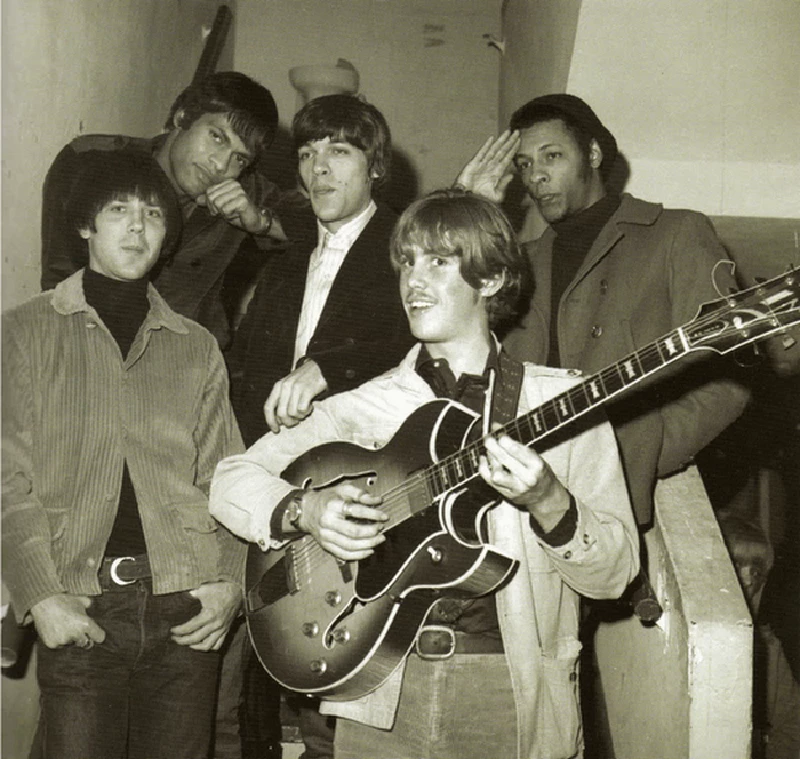
intro
Ahead of the final upcoming UK tour Dastardly talks to original Love guitarist Johnny Echols about his time playing with one of the most critically acclaimed bands of the 1960s.
This June/July 'The Love Band' featuring founder-member Johnny Echols on guitar will return for one last UK tour from late June to early July celebrate the music of Arthur Lee and Love. For many it will be the only chance they'll ever get to experience some of rock's most celebrated music in the hands of at least one of the people who originally summoned it into being. Perhaps more than any other band from that first flowering of rock in the mid 1960s, the story of Love is one of what was going on in the background…the cruel twists of fate, of being in the right place and the wrong place at the same time, of business deals both good and bad. And then there was the music, amazing music that is still finding new fans half a century later. I spoke to Johnny on the phone from LA and started by asking him about a childhood meeting with Little Richard, who then went onto become a mentor for the young guitarist. JOHNNY ECHOLS: He [Little Richard] used to come by and we'd see him often when we were kids and we'd run up to his car and he'd give everybody dollars…yeah, I got to know Richard well and I played with him quite a bit and did a tour of England with him and that was 1963 or 64 with Jimmy James, later Jimi Hendrix, and that was when I met the Beatles as they did a few dates with Richard, but then I had to come back to Los Angeles as I didn't do the whole tour. PB: Wow…because I'd read that very shrewdly Little Richard had given you some advice about ownership of music. Is that right? JE: Absolutely he did, so we [Love] started our own publishing company called 'Grass Roots Music', so all of our songs were self-published and that meant that we had ownership of everything and still do…and that was probably the wisest advice I've ever gotten because it put us in a much better position financially than we would have been otherwise…as that's where all the money comes from is publishing, because the record companies can always claim that you still owe them for recording fees and all of that and you never get anything but you get all of your publishing immediately. PB: Without being too boring, presumably you still have to technically find the mechanics to collect those royalties yourself? JE: Well, we have an administrator. We use BMG who administers our publishing and before that Lieber and Stoller or Third Story. So, we've had several but they get a small fee to run everything and you get the lion's share rather than the other way round. Most people, even The Beatles, didn't own their own publishing. So, that information at that early age was really fortunate for us to be told that and be able to act on it, so I'm grateful to him for that. PB: Going back to that early ‘60s UK tour, did you have any inkling of the guitarist that Jimmy James would turn out to be just a few short years later? JE: Not at all! The first time I met Jimi he was playing at the California Club with Billy Preston and I thought he was, you know, a so-so journeyman guitar player. I didn't see anything special about him. He was a nice guy! But he was just an ordinary guitar player because during that time there were so many great guitar players, Albert Collins, BB King, to name a few, so I wasn't that impressed but later on Love had played in San Francisco and some friends of ours mentioned this guy named Jimi Hendrix. At that point I hadn't put it together that this was Jimmy James, so I went down to the Whiskey with Arthur and we said, ‘Wow!’ That's the same guy we knew from the California Club and then when he played we were just both astonished. What the hell! This guy is really amazing. So when I saw him after and he remembered us of course, although he was closer to Arthur than me. And we came up to the dressing room and so I asked him then “Did you take a trip?” Crossroads, you know what happened? Ha ha! Because he went from just so-so to amazing in barely a couple of years…it was something. PB: I saw Arthur Lee perform 'Forever Changes' in 2003 in Brighton. I remember him kind of shuffling, lolloping onto the stage and I immediately thought he was like Jimi Hendrix's older brother or something! So, do you think Hendrix took a bit from Arthur style-wise? JE: Absolutely, because Arthur was dressing in the way that Jimi eventually wound up dressing for months or even a year or so before that…and Jimi had seen, you know, some of the way Arthur was dressing and his attitude and all of that. So he co-opted quite a bit of it. PB: Was Arthur okay about that? JE: He kind of joked about it. It concerned him but, no, of course he was flattered Jimi did that. PB: I guess everyone was influencing everyone else at that time. In fact I read about Mick Jagger and Keith Richards coming down to one of your gigs and "borrowing" that “she comes in colours” line for their song 'She's a Rainbow'. JE: Also (Love song) 'Revelation' which was called 'John Lee Hooker' back in the time...eighteen minutes long so then they (The Stones) did a song called 'Going Home'…and I remember Mick asking me if the audience was okay with us playing a song for that long because we would play 'Revelation' sometimes for a whole set - just as one song. PB: With people going on and off, right? JE: Yeah, like jazz musicians. That's what they would do. The first person, the singer, would leave then the other people would continue playing and that soloist would leave then the next one, leaving the drummer finally to do a long drum solo and he would kind of drift back on it and we'd complete the song, but that was a kind of a routine jazz thing when they did these long extended songs. We kind of co-opted that and started doing that kind of thing. We were one of the first 'Jam Bands'…so that's what we were known for back in the day - being very hard rock and very jam orientated and of course we changed over the years but that was the initial appeal of Love. PB: Another interesting fact I came across was about someone wanting to cover 'Hey Joe' because they'd seen you covering it and you gave them slightly, ahem, 'alternative' lyrics because they were effectively trying to steal a song that your band was known for playing. But then those wrong words have now ironically become the definitive version! JE: Yeah, that was The Leaves with their version of 'Hey Joe' with the line “Where you going with that gun in your hand?” instead of “Where you going that MONEY in your hand?” because it totally makes no sense. Why would you be going with a gun to buy a gun? The song as it's originally written makes sense because the guy sees a friend and he asks him where he's going. He tells him he's going down to the pawn shop to buy himself a blue steel 44 as his wife was cheating on him, so it tells a coherent story that you can go from here to there to there, but the words that I gave him were basically nonsense! PB: Ha! I love the way that then that becomes 'The Thing'. JE: Yeah, that worked out very well for me for a while because Third Story Music was the original publisher and so I was paid for the words - for writing those wrong words! But then Third Story was bought out by another company and the cheques stopped….and then it was too late to file a claim or anything. But it was quite lucrative for a while. PB: I wanted to ask about the recording of Love's most famous album 'Forever Changes' and in particular something I'd heard about, When you originally got to the studio to record it apparently producer Bruce Botnick had got in the 'Wrecking Crew' session musicians to use instead of the band - is that what happened? JE: No, what happened was, first of all, Bruce Botnick was the engineer - he claims he was the producer - but Arthur was the producer, What happened was when we got to the studio, we had expected to do a double album, and so Bryan Maclean [the other Love guitarist] and I had written songs, so that we could kind of have our own material showcase rather than just playing Arthur's stuff. And Bryan especially wanted more of his songs, so we were told that it would be a double album. So, we came to the studio ready to do that, and then all of a sudden we were told that, no, we're going to just do a single album and we'll do the other one later. Bryan wasn't happy at all about that. He got the sulks a bit and he wasn't playing Arthur's songs the way he normally would. So, Jac Holzman at Elektra Records got the idea that if they brought in a couple of studio musicians to kind of get the ball rolling that then we would play with them or play on top of what they did and it would sound like Love ,but it didn't. When they brought these guys in – they brought in Carol Kaye, Don Randi, Billy Strange and Hal Blaine - the only song they're actually playing on with us is 'The Daily Planet'. Plus there's some guitar parts and Don Randi playing piano on 'Andmoreagain', but they didn't play on any other songs. Love played every single song. They just played a couple of songs with us and we finished the album that way but when it started it was, uh, a little tense in the studio. It was a chaotic situation initially but it worked itself out. PB: Did you have any idea when you were making the record that people would still be talking about it now and that it would go on to become one of the most critically revered albums, along with ‘Pet Sounds’ and ‘Sgt. Pepper’ from that era? JE: No, we thought it was a great album…we thought we'd done something really cool and really good, pushed the envelope…but we had no idea it would have the impact that it eventually had. It's amazing to me. We play all the time and go to different countries and people, young people not even born when we recorded and released this, know all the words and they sing the songs with us. I'm so grateful that it's still considered relevant and everybody appreciates our work. Makes you feel good! PB: Can you tell me a bit about what is was like to be part of that cultural explosion, that explosion of talent that was happening during the mid to late 1960s? JE: That was a magical time to do music. Music was a catharsis for the young people at that time because you had the Vietnam War. Nobody knew if they were going to be called up to go and die in some godforsaken jungle. The Laurel Canyon/Hollywood scene was in one little area. In one little street we had The Doors, Iron Butterfly, Love, the Turtles, Frank Zappa and Buffalo Springfield . We were all living across from each other and hung out together, and that's something that would never ever happen again. And we all played at these places like the Whiskey a Go Go, Bido Litos or Brave New World and saw each other every day, so everybody had a kind of friendly rivalry. It was an amazing time to live. PB: What about record companies. How did you end up with Elektra? JE: We had offers from so many different companies and we settled on Elektra, just because they were the only one that would allow us to own our own publishing. PB: And you gave them The Doors as well. Is that right? JE: What happened was MCA had stepped up and offered us probably more money than any group had received at that time and they were going to buy us out of the Elektra contract, so we thought if we hooked them up with The Doors they would be more inclined to let us go. So, Jac Holzman from Elektra came down to see them several times and he hated them! Jim [Morrison] was drunk and slurring his words and stumbling around, and Jac said to us, “Why did you have me come all the way from New York to see these guys?” Anyway, he came back again with the same result, and finally he came back a third time with producer Paul Rothchild, and they saw what everybody else saw and they signed them. Then, of course, they didn't let us out of our contract so we basically shot ourselves in the foot because the money that would have gone to promote 'Forever Changes' was now going to The Doors! So, we didn't help ourselves at all by doing that, but it was wonderful for The Doors. I'm proud of their success because we had a major part in it…because had they not signed with Elektra at that point they were on the verge of breaking up. PB: Talking of Jac Holzman, I wanted to ask you about the recording of the legendary proto-punk single '7 And 7 Is' which he produced in July 1966. I saw an interview with him and he was talking about how loud you guys played and how he thinks he might have had hearing damage after the session! Can you tell me about recording that track? JE: Well, Arthur wrote the words to '7 And 7 Is', but it was an entirely different song when we went to the studio as Vox had given (bass player) Ken Forssi this bass overdive pedal and I was using a very loud tremolo/vibrato pedal and Snoopy [drummer, Alban Pfisterer] couldn't keep up with it. It was a relentless on-time thing and he had to keep up with that pulse. In the end we had to record that song well over ninety times to finally come up with the version you hear. And we were playing loud and distorted, and most groups didn't do that. Jac Holzman and engineer Bruce Botnick were beside themselves because they wanted a very clear pristine record with no mic bleed, but that was not what '7 And 7 Is' is about. It's about controlled chaos. It was one of my favourite songs to do because at that time we were really pushing the envelope with that bass overdrive. Then Kenny and me playing were off of each other, and the whole song is revolving around that particular sound. The sound was the song. And that's why we were at loggerheads with Jac because he said, “No, we can do all of this later in the mix. Let's just put the song down.” But we knew if we recorded the song the way they way wanted to it would have been just an ordinary song…it wouldn't have had the impact that it had. PB: You mentioned earlier about problems with Elektra not letting you out of the recording contract and then promoting The Doors rather than 'Forever Changes'. Was that the beginning of the end for the band? JE: After recording 'Forever Changes', we lasted about another year and a half before finally going our separate ways, but the emphasis for finally breaking up began with the turmoil around 'Forever Changes' and the hard feelings we had because Bryan just never got over that. He also worked out a separate arrangement with Elektra - in order for them to get him to come back and play properly. They said they would do a solo album and then when Arthur found out about it, it was like “Wow that's great, Congratulations. You're fired!” And Bryan never played with us again. We tried and we played several rather large venues without Bryan but it didn't sound the same. You know Bryan was an integral part of that group - before that Love was basically a covers band. We played whatever was on the radio, top 40 stuff, and we were much more blues and hard rock oriented, but with Bryan's influence and his input we gradually changed into what became the Love sound. He doesn't get the credit he deserves, but without Bryan there would have been no Love as you know Love. We had the perfect mix and we could not put that back together once it was broken. Bryan really loved kind of folkish Broadway shows. Arthur was into R&B and jazz, and I was also into hard rock, as with Kenny, and so we kind of melded all those influences together to create what became the Love sound. No other group really had the diverse backgrounds that we had to create a cohesive whole. PB: And then you had Arthur out front… JE: Arthur was a brilliant, wonderful poet. He saw life through different eyes and he could put that down in the words. We would always hear Arthur singing…whenever we saw each other Arthur would be humming or singing one of those songs….and Bryan and Kenny and I were the musical part of the group because Arthur, except for a song or two on the first album, didn't play on any of the songs, He was basically the wordsmith of the group and he had his unique take on life and he would put those down in words. 'A House Is Not a Motel' is an example of some of Arthur's incredible poetry, and we were able to put that to music and it worked. The formula that we had for writing songs and working things out actually worked for us. Once we started recording and going into the studios we would finish the songs they would be entirely different than they started out initially - because of the way Love worked. Arthur knew how he wanted his stuff to sound, and so we would play one thing and he'd say, “I like that” or “I don't like that.” And that's basically how everything was assembled - Arthur listening to us play different variations and different ideas of songs. It was a total group project and a group effort. PB: After Love split I read you went to New York and did lots of studio work. Did you play in any bands as well at that time or try and get Love back together? JE: No, no, I basically did studio work, and that worked for me and paid the bills, and I was having fun. I spoke to Arthur often, and he would come to New York and hang out with me or I'd go to LA and hang out with him, and we tried, we tried over and over repeatedly to put the group back together, but for some reason something would happen. Either Bryan was a no-show or something would come up…and then, finally, when we got everything together and we were ready to tour in support of the 'Love Story' box set, Arthur ends up going to prison for a firearm violation. Arthur was fascinated with guns, so he had a gun in a holster and he'd walk around the house with it. The neighbour came to the door to complain about the noise, sees Arthur with the gun and he called the police, and then that went on for a couple of years - the court case and all of that - and we thought, of course, Arthur would get a fine or something and it would [all] be done. Instead he went to court expecting to come home then went to prison! Once that happened the tour was over, so we tried it but just wasn't meant to be. PB: Thankfully Love did finally tour again and you were able to join Arthur back on stage in 2005 but it was to be a short-lived reunion. When you did find out Arthur was seriously ill? JE: We knew something was wrong because he was cold all the time, but we didn't realise that it was a death sentence. Later on Arthur was really out of it and very, very tired, and so he went to the hospital to be checked out, and they told him he had leukaemia. So, he was in Memphis at the time and that's where he passed away. PB: Is that where you were from originally? JE: We were both born in Memphis. Our families go back to before either of our parents were even born. They were long long-time family friends and my grandmother and Arthur's mother were close friends. They were kind of in the same age bracket, and Arthur's father was a trumpet player in Jimmy Longford's orchestra. And that was what I played at high school. I was in the high school band and Arthur would hear me day in and day out, as we lived right next to each other, practising the trumpet…so he got to like the instrument, I guess. PB: I wanted to ask you in fact where was your favourite place you've lived as you've been on both the East and West coasts. JE: Los Angeles is my favourite place. It's where my family is, my roots. This is where I grew up, where I was raised. I was a little kid when I left Memphis, and it was the South and opportunities were very scarce there for black people and my father. That was another one of the reasons Love didn't achieve success like The Doors did and sold records is because we were an integrated group, and in the South we just couldn't play. There were racism and segregation and we were often booked, but they would ask us to play in front of a segregated audience, one night white audience, one night black, and we refused. PB: Lastly, Johnny, I was talking to my friend Eddie yesterday - who co-incidentally introduced me to the song '7 And 7 Is' - and I told him I was going to be talking to you and did he have a question he'd like me to ask and he said to ask, "Do you still get a kick out of music?" JE: Absolutely! I love music and I still get a kick out of playing it and probably more so now than I did back in the day...because we're playing to very large audiences, the young people and the older people, and to see them both in the same venue together playing this music is...is just a blessing and it's just fascinating. PB: Thank you.
Band Links:-
http://www.lovearthurlee.com/https://www.facebook.com/Arthur-Lee-Love-56560602704/
http://www.love-revisited.com/
https://www.facebook.com/LOVE-revisited-118131261541058/
Picture Gallery:-
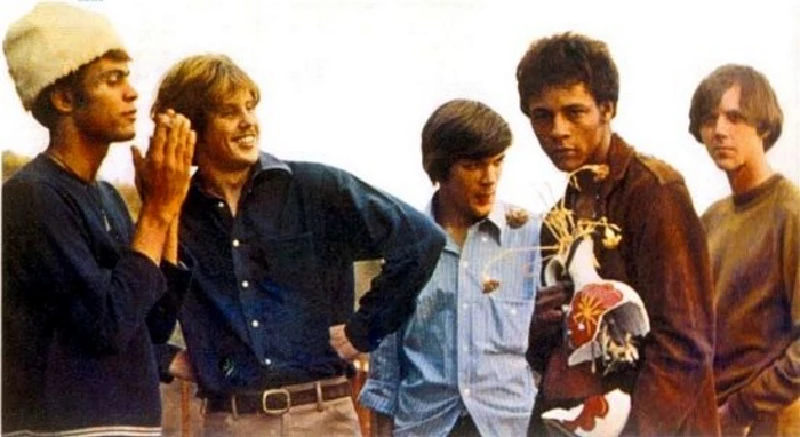
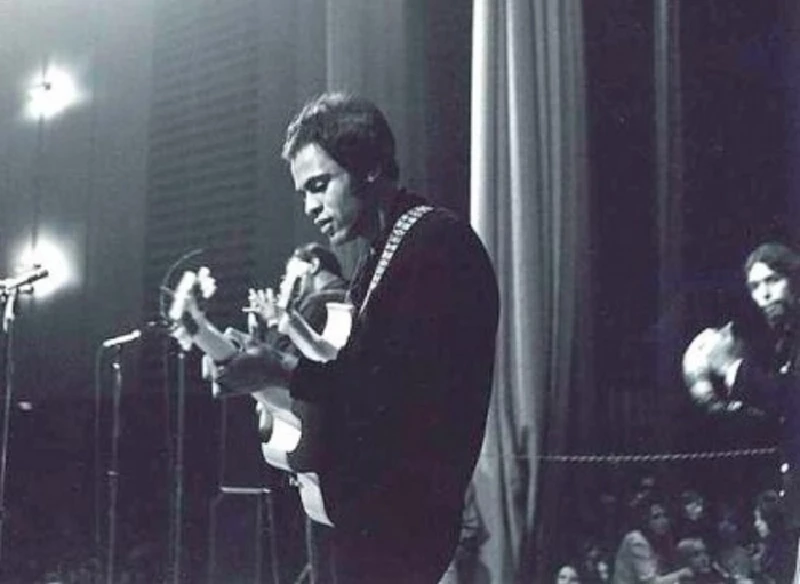
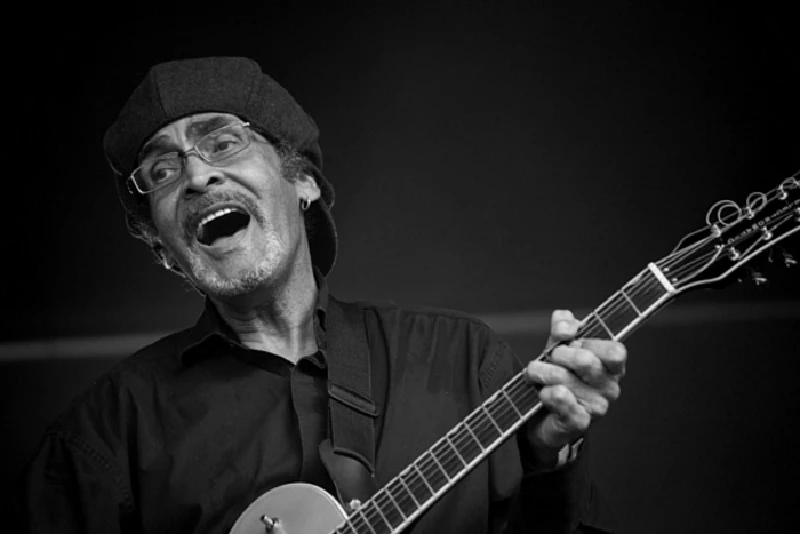
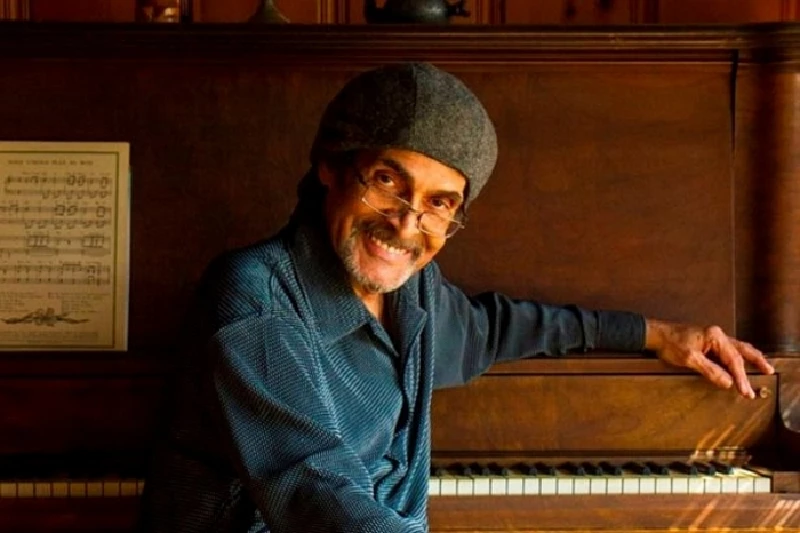
Visitor Comments:- |
| 903 Posted By: dastardly, dining room/study on 11 Nov 2019 |
|
hi stephen, saw yr question re - who played the 12 string gtr parts. will try and find out nd let you know cheers! dastardly
|
| 898 Posted By: Stephen Moller, London England on 16 Oct 2019 |
|
I have a question: who played the great 12-string guitar parts on Forever Changes. I always thought that it was Johnny though Drachen Theaker (who played briefly with a later version of the Love group round about the time of Four Sail) claimed it was Arthur - but is that correct?
|
interviews |
|
Interview (2016) |
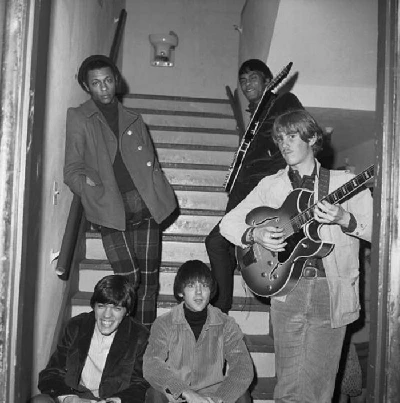
|
| Anthony Strutt talks to Love guitarist Johnny Echols about his friendship with their front man, the late Arthur Lee; their relationship with Elektra Records and the making of their first three classic albums |
profiles |
|
Love Story (2006) |
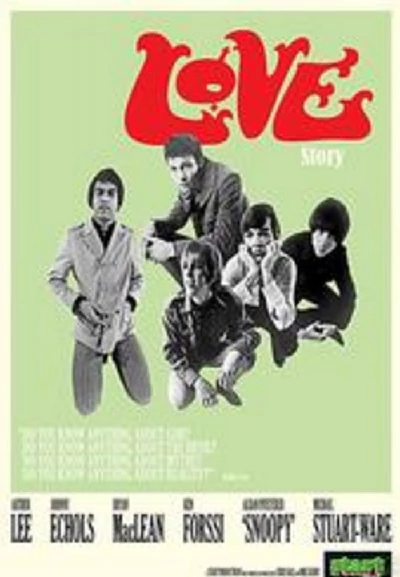
|
| Love Story’ is a new film documentary which tells of the rise of the band Love from its earliest roots in 60’s Los Angeles until frontman Arthur Lee's death earlier this year. Anthony Strutt attends one of its two London screenings |
favourite album |
|
Reel to Real (2016) |
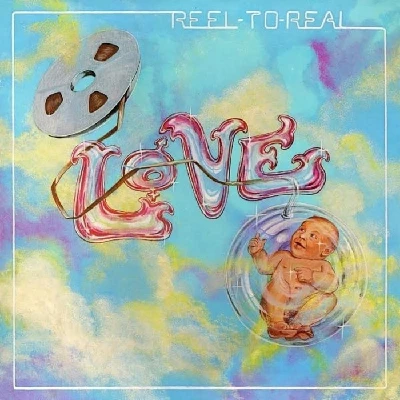
|
| Carl Bookstein reflects upon the re-release of Love’s previously largely unnoticed 1974 album 'Reel to Real' and singer songwriter Arthur Lee’s rewarding soul music approach |
features |
|
1945-2006 (2006) |
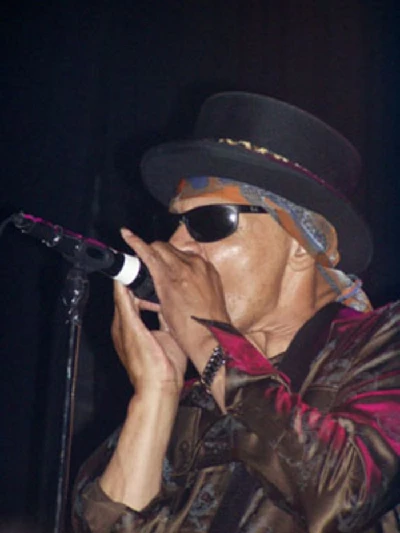
|
| Mark Rowland looks back on the stormy career of Love guitarist and singer Arthur Lee, who died after losing his battle against leukaemia on August 3rd |
reviews |
|
Love Songs: An Anthology of Arthur Lee’s Love, 1966 – 1969 (2014) |
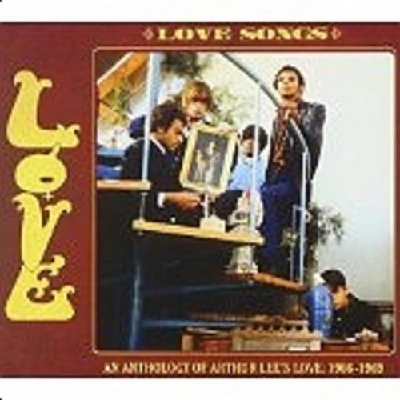
|
| Essential double CD compilation from 60’s psychedelic group Love, which combines together tracks from their first four albums, including all of their classic third record, ‘Forever Changes' |
most viewed articles
current edition
John McKay - InterviewCathode Ray - Interview
Robert Forster - Interview
When Rivers Meet - Waterfront, Norwich, 29/5/2025
Spear Of Destiny - Interview
Fiona Hutchings - Interview
Carl Ewens - David Bowie 1964 to 1982 On Track: Every Album, Every Song
Chris Wade - Interview
Shrag - Huw Stephens Session 08.12.10 and Marc Riley Session 21.03.12
Brian Wilson - Ten Songs That Made Me Love...
previous editions
Heavenly - P.U.N.K. Girl EPBoomtown Rats - Ten Songs That Made Me Love....
Manic Street Preachers - (Gig of a Lifetime) Millennium Stadium, Cardiff, December 1999
Allan Clarke - Interview
Oasis - Oasis, Earl's Court, London, 1995
Barrie Barlow - Interview
Beautiful South - Ten Songs That Made Me Love...
Pixies - Ten Songs That Made Me Love...
Chuck Prophet - Ten Songs That Made Me Love...
Dwina Gibb - Interview
most viewed reviews
current edition
Peter Doolan - I Am a Tree Rooted to the Spot and a Snake Moves Around Me,in a CircleVinny Peculiar - Things Too Long Left Unsaid
Garbage - Let All That We Imagine Be The Light
Vultures - Liz Kershaw Session 16.06.88
John McKay - Sixes and #Sevens
Little Simz - Lotus
HAIM - I Quit
Pulp - More
Lapsley - I'm a Hurricane, I'm a Woman In Love
Billy Nomates - Metalhorse
related articles |
|
Pete Fij and Terry Bickers: Live Review (2014 |
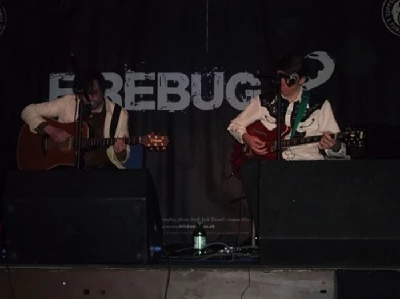
|
| Anthony Strutt watches ex-Adorable front man Peter Fij and House of Love guitarist Terry Bickers play an intimate show to promote their debut album, 'Broken Heart Surgery', at the Firebug in Leicester |
Pennyblackmusic Regular Contributors
Adrian Janes
Amanda J. Window
Andrew Twambley
Anthony Dhanendran
Benjamin Howarth
Cila Warncke
Daniel Cressey
Darren Aston
Dastardly
Dave Goodwin
Denzil Watson
Dominic B. Simpson
Eoghan Lyng
Fiona Hutchings
Harry Sherriff
Helen Tipping
Jamie Rowland
John Clarkson
Julie Cruickshank
Kimberly Bright
Lisa Torem
Maarten Schiethart